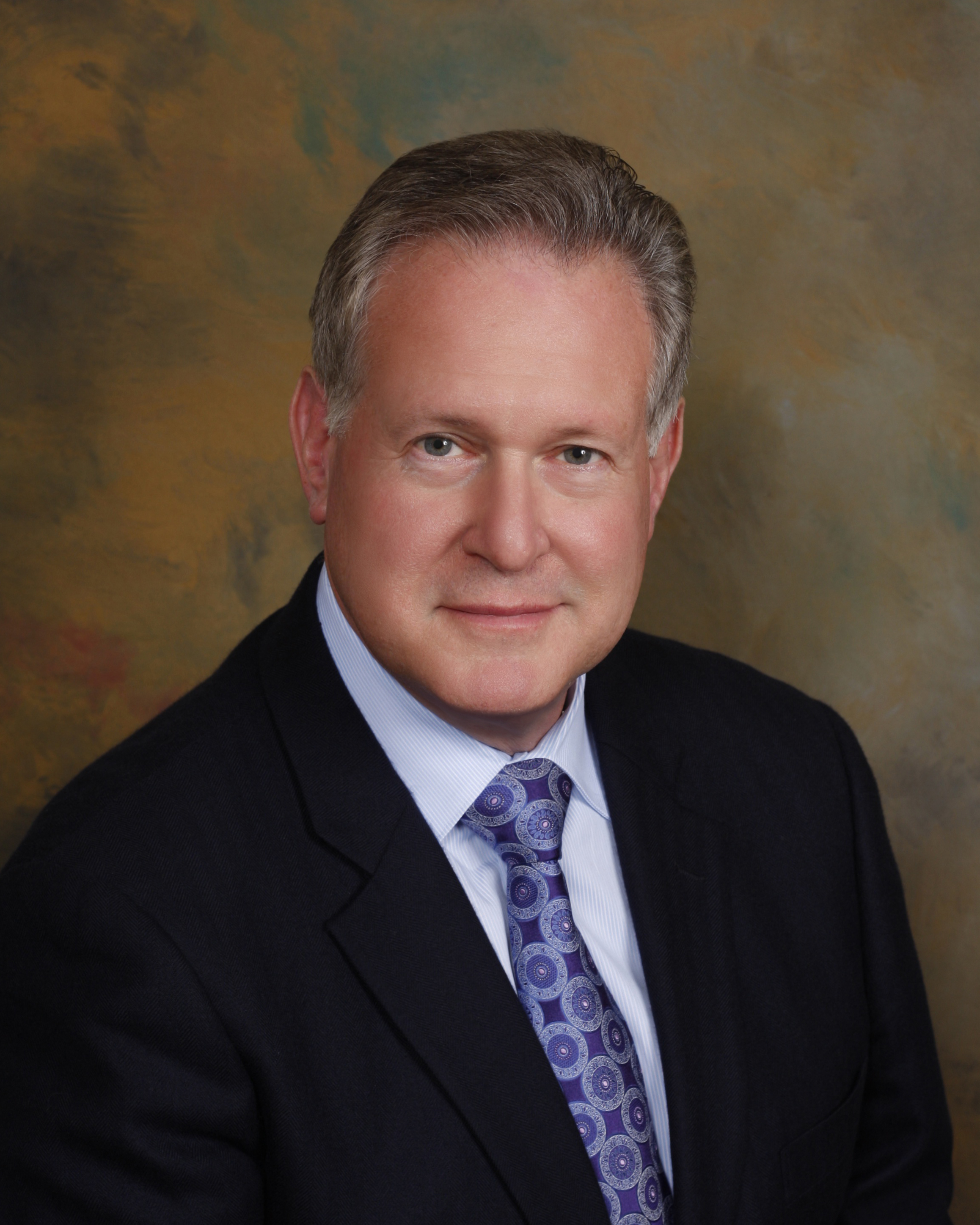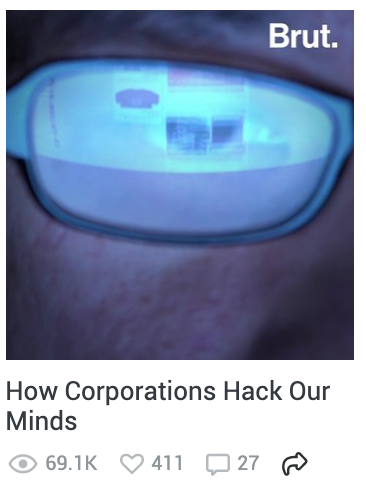

Robert Lustig at the 2012 Ancestral Health Symposium

Robert Lustig, MD, MSL
“Dr. Lustig’s presentation on the destruction of sugar has been my favorite lecture thus far. The one point that really resonated with me through his talk was the idea that “every calorie is not made equal.” I often find people trying to justify eating one greasy meal a day as a good method of weight loss while reasoning the choice using the argument that they are still in a caloric deficit. Sure, the individual might lose weight in the moment, but they have no idea what might be happening to their metabolic processes! Having observed that, I have experienced first-hand how much of a difference Dr. Lustig’s efforts to differentiate between internal health and body appearance might make on someone’s perspective of a healthy lifestyle. I appreciated the amount of research that he brought to the table about the ‘obesity-epidemic’ that our nation is facing. Health should be assessed from our metabolic functioning, not necessarily from our outer appearance. As Dr. Lustig argued, the narrative should be shifted to reflect the importance of maintaining a healthy liver, and thus healthy metabolic state, as opposed to the amount of subcutaneous fat that an individual’s body may hold. Like he mentioned with the support of liver scans, a thin individual with massive amounts of liver fat has much more to fear than an overweight individual with minimal liver fat.”
“I was very impressed with Dr. Lustig’s presentation. Although I have often heard that sugar is dangerous component in diets, I never learned the reasons why. Fortunately, Dr. Lustig enhanced my understanding by giving a comprehensive, scientific overview of how sugar in the diet impacts liver health and leads to metabolic syndromes. In addition, I appreciated that Dr. Lustig dispelled the myth that sugar consumption and diet is about personal responsibility. In public health, it is important to recognize that health behaviors are reflective of the food system, and not the individual. In order to see changes in health status, we must focus on changing the policies and culture that govern the food system.”
“I was really amazed by Dr. Lustig’s discussion. I was so intrigued by his study that replaced sugar with starch in school lunches. I couldn’t believe the impact it had on their health in just 9 days. I wish options were available in schools that did not have added sugar. We are currently fostering a girl with diabetes, and my mom packs her lunch everyday and does not allow her to eat school lunches. She had previously been eating school lunches, as well as unhealthy foods in her home, and her blood sugar levels were so consistently high that her liver was beginning to shut down at age 15. In addition to her, the other students in the district are from low-income families, so many of them do not eat nutritious meals at home, if any meal at home. That is why it is so necessary that they can at least be provided with healthy, real food at school.”
“Dr. Lustig’s presentation tonight on sugar and public health was engaging and eye-opening. I was particularly fascinated by the discussion of the causes of chronic metabolic disease such as Type II Diabetes. One of Dr. Lustig’s key points was that obesity is not the cause of metabolic dysfunction, added sugar is. Obese people can be metabolically healthy (20% are), and “normal-weight” people can be metabolically unhealthy (40% are). This information leads to an important conversation on personal responsibility and blame that has characterized the public health approach to the “obesity epidemic”, which might be more accurately called the “chronic metabolic disease epidemic”. To have personal responsibility, we must have knowledge, access, affordability (personal and societal), and externalities (personal choices can’t harm others). These four criteria are not met when it comes to discussing the role of sugar in our diets and health, so the personal responsibility approach to solving the current health crisis looks a lot more like victim-blaming than solution making. I am interested to learn more about Dr. Lustig’s and other researchers’ recommendations and solutions, especially through the lens of equity, justice, and dignity. How can public health solutions ensure the best interests of the public without compromising on individual interests and freedoms in the interim?”
“Dr. Lustig’s discussion of the relationship between GDP spending towards health care and processed food production and consumption was very striking. Specifically, I was shocked when he displayed the graph showing the increase of processed food consumption overlaid with the GDP spending towards health care and pointed out the obvious and drastic relationship between the two trends. However, I was surprised that this topic remains contested in some communities and environments despite the clear and pointed evidence towards a relationship between health issues and increased consumption of processed food. Is this due to a lack of access to this information? I have learned a lot about the effects of sugar on health through Dr. Lustig’s lecture, and I’m curious as to how it is going to affect the choices I make when buying groceries and making choices when it comes to my own diet. Will knowing this information and learning about the clear causation relationships between sugar and health issues like T2 diabetes and fatty liver disease change the way I think about food?”
Book Dr. Robert Lustig to Speak
Dr. Lustig gives talks and presentations all over the world.
If you are interested in booking him, please click here.
Dr. Lustig’s current speaking dates are listed here: http://robertlustig.com/events
Robert Lustig
- Clinical Research Scientist and Professor of Pediatrics, Division of Endocrinology, UCSF
- Bestselling Author of Fat Chance and Hacking of the American Mind
- Global advocate fighting addictions to sugar, processed foods and technology
Complete CV and bio available upon request.
Robert H. Lustig, M.D., M.S.L. is Professor of Pediatrics in the Division of Endocrinology, and Member of the Institute for Health Policy Studies at University of California, San Francisco. Dr. Lustig is a neuroendocrinologist, and an international authority on obesity, diabetes, nutrition, and neuroscience. Dr. Lustig graduated from MIT in 1976, and received his M.D. from Cornell University Medical College in 1980. He completed his pediatric residency at St. Louis Children’s Hospital in 1983, and his clinical fellowship at UCSF in 1984. From there, he spent six years as a research associate in neuroendocrinology at The Rockefeller University. In 2013 he received his Masters in Studies of Law from UC Hastings.
Dr. Lustig is one of the leaders of the global “anti-sugar” and “real food” movements to improve global health. He is the author of over 200 academic works, which connect the science of food and metabolism to the policy and the politics of the obesity and diabetes pandemics. He also comments on the role of industry tactics to promote hedonic substances and behaviors and the resulting aftermath of healthcare and societal devolution.
Dr. Lustig is the author of the New York Times bestseller Fat Chance: Beating the Odds Against Sugar, Processed Food, Obesity, and Disease. He is also the author of The Hacking of the American Mind:The Science Behind the Corporate Takeover of Our Bodies and Brains.
Dr. Lustig is a sought after speaker, and has spoken at events for the following:
Medical Community
- Endocrinologists, pediatric endocrinologists
- Pediatricians
- Neuroscientists
- Psychiatrists, psychologists
- Behavior specialists, addiction specialists
- Cardiologists
- Gastroenterologists
- Gerontologists
- Surgeons
- Biochemists
- Nutritionists, dietitians
- Nurses, physician assistants and extenders
- Oncologists
- Dentists
- Social disparities and social determinants of health
- Pharmaceutical industry
Public Health Community
- Municipal, State, and National Departments of Health
- Public Health Departments or Think Tanks
- Technology and social media industries
- Economists
- Governmental policymaking units
- Attorneys and law schools
- Military
- Health journalists
Business Community
- Food industry, food entrepreneurs
- Exercise industry
- Health insurance industry, general insurance industry
- Banks
- Investors and healthcare entrepreneurs
And the General Public, of course…Dr. Lustig has spoken at hundreds of community based events.
Dr. Lustig’s 2009 video entitled “Sugar: the Bitter Truth” went viral and has now been viewed over 9 million times, growing at a rate of 100,000 views per month. With hundreds of videos and thousands of sites featuring his work, including his own website, social media, printed and online content, Dr. Lustig reaches over one million people per month with his inspiring, science-based messages. Dr. Lustig is also Chief Scientific Officer of EatREAL, a non-profit dedicated to reversing childhood obesity and diabetes by impacting the global food supply.
Sample Speaking Topics
The Hacking of the American Mind
What is the difference between pleasure and happiness? Pleasure is short-lived, happiness is long-lived. Pleasure is visceral, happiness is ethereal. Pleasure is usually experienced alone, happiness is often experienced in social groups. Pleasure is achievable with substances, happiness cannot be achieved with substances. Pleasure is taking, happiness is giving. And pleasure is dopamine while happiness is serotonin. Why should we care? Because dopamine down-regulates its own receptor. Get a hit, get a rush, and the receptors go down. Next time you need more, and more. Anything that generates pleasure can also lead to addiction. Conversely, serotonin does not down-regulate its own receptor, so you can’t overdose on too much happiness. But there is one thing that does down-regulate serotonin: dopamine. So the more pleasure we seek, the less happy we get. Wall Street, Madison Avenue, Las Vegas, Silicon Valley, and Washington DC have conflated pleasure with happiness so that we don’t know the difference. In the process society has become fat, sick, stupid, and broke. The only way to reverse this is by understanding the science of these two ostensibly “positive” emotions, how they interact, and how to modulate them. Because those who abdicate happiness for pleasure will end up with neither.
Happiness, Longevity, and Disease
Do happy people live longer? Indeed they do, but it’s not because they are happy. It’s because they engage in fewer reward-seeking behaviors that shorten their lives. Reward drives consumption of substances like alcohol and sugar, which reduce life-span, and stress drives cortisol, which drives further consumption of substances. Thus stress and reward lead to an unremitting “vicious cycle”, which shortens life. Understanding these behaviors and the biochemistry behind them is necessary to increase both happiness and longevity.
Corporate Wealth or Public Health?
Until the 1970’s there was a relatively even balance between individual rights and corporate rights. However, the past 45 years has seen the rise of the Corporate Consumption Complex, and in turn, the loss of individual rights. Understanding the history and politics, and the role of specific corporate and government actors is necessary to comprehend what has amounted to a seismic upheaval of the U.S. Constitution. In the process, America has become fat, sick, stupid, and broke.
The Death Spiral
The “death spiral” is a doubles figure skating maneuver in which the larger skater pivots on one toe while holding the hand of the smaller skater, who whirls about in a supine position as the head reaches closer and closer to the ice. Centrifugal force is the only thing that stands between the skater and oblivion. That’s where America now finds itself, in a “death spiral”—a virtual health care vortex, flirting with oblivion, from which it seems impossible to escape. But there’s no force trying to pull us back up; rather we just get closer to the brink. The failure of Obamacare, and the reason that Trumpcare did not come to a vote, is because in America healthcare is sickcare, and healthcare can’t fix health. Obesity, diabetes, heart disease, stroke, cancer, and dementia are among a set of diseases known collectively as metabolic syndrome, and these diseases threaten to bring our entire health care system to its knees. There is no fixing of healthcare, until we fix metabolic syndrome, and we can do that until we fix our diet.
The Science Behind The Sugar Tax
Why are governments picking on sugar? Several cities in the U.S., and several countries around the world have recently enacted a sugar tax to try to stem the tide of obesity and type 2 diabetes, which threaten to bankrupt healthcare worldwide. Such “sin taxes” have enormous implications for business, and for economic productivity. What is the science behind the passage of these ordinances? Can they really change health and healthcare? Understanding the science of chronic disease, and linking the science to rational policy measures, is now an essential exercise for any government.
Sugar: the newest and bitterest truth
Dietary sugar (sucrose) is composed of two molecules, glucose and fructose. While the glucose raises insulin and promotes weight gain, it’s the fructose that leads to chronic diseases like diabetes. Fructose is metabolized in the liver in the same as alcohol, so it should not be surprising that children now get the diseases of alcohol (type 2 diabetes and fatty liver disease), without consuming alcohol. We have proof-positive data that sugar causes four chronic diseases: type 2 diabetes, heart disease, fatty liver disease, and tooth decay. Sugar also stimulates the reward centre of the brain similar to what nicotine, heroin, or alcohol does, driving continued consumption. Studies show that sugar is slowly killing people around the world, anywhere the Western Diet has supplanted indigenous diets. Sugar is ubiquitous, appearing in virtually every processed food, and is a public health hazard.ts quality above quantity.
Should sugar be considered a dangerous drug?
Public health experts note that any substance must meet four criteria to qualify for regulation: 1) ubiquity; 2) toxicity; 3) abuse; and 4) externalities (negative impacts on society). Tobacco and alcohol clearly meet these criteria, and we regulate them. How about sugar? Sugar is ubiquitous, appearing in 74% of all foods in the American food supply. Sugar is toxic, unrelated to its calories or its effects on weight. Sugar is abused, and meets all the criteria of an addictive substance. And finally, sugar demonstrates negative impacts on society, in the form of decreased economic productivity and increased healthcare costs. Sugar meets all four criteria for regulation, but we give it to our children without a second thought.
The three myths of the food industry
The epidemic of non-communicable diseases (diabetes, heart disease, etc) is a worldwide problem. We need to reallocate resources – but what are the best ways to tackle NCDs? There are three myths being promulgated by the food industry for their own purposes – they sound correct, but all three fall apart when you look at the data. Myth 1: It’s about obesity. The standard mantra is that the epidemic is driven by ‘calories in, calories out’: it isn’t. Instead, it is about all the chronic metabolic conditions that go into NCDs. Myth 2: A calorie is a calorie. But where those calories come from has everything to do with how we metabolise them – and this in turn has everything to do with the diseases that follow on. Nutritional biochemistry explains that the food quality is more important than the food quantity. Myth 3: It’s about personal responsibility. There are four caveats to personal responsibility: You have to have knowledge, but we are being kept from knowing what we are eating. You have to have access to healthier products. Many Americans do not. You have to be able to afford your choice – and society, too, has to be able to afford your choice. And your choice must not harm anyone else – yet if I eat badly then it can affect you. The food industry is in business to make money. But currently the industry is making money by hurting people – this is what tobacco did, and we took the industry on. We need to get the food industry to capitulate to change the food supply as a public health strategy.
Topics For Medical Professionals
- Sugar, metabolic syndrome, and cancer
- Is sugar toxic beyond its calories?
- What is metabolic syndrome, and why are children getting it?
- Tooth decay and liver decay: What did the dentists know, and when did they know it?
- Dietary factors, NAFLD, and metabolic syndrome
- Why sugars hurt Asians more
- Targeting insulin in obesity
- Is diabesity due to a poison?
- The neuroendocrinology of obesity
- Sugar, hormones, and addiction
- Type 2 diabetes is processed food disease
- Three faces of metabolic syndrome
Sample Recordings of Dr. Lustig’s Presentations
Dr. Lustig’s presentations have been seen by millions.
Here are just a few examples…
“Sugar: The Bitter Truth”
Filmed at the University of California Television – 8.5 million views and counting…
“Sweet Revenge: Turning the Tables on Processed Foods”
Filmed at KCET, Seen by over one million people on 400 public television stations.
“Hacking of the American Mind Interview”
Filmed at UCSF – Seen by over 250,000 people and counting.
“Sugar – The Elephant in the Kitchen: Robert Lustig at TEDxBermuda 2013”
Seen by 1.1 million people and counting.
“What is metabolic syndrome anyway?”
JumpstartMD Weight of the Nation Conference 2018 – 110,000 views and counting…
“Kopriva Science Seminar Series”
College of Letters and Science, Montana State University, March 8, 2018
122K views and counting…



